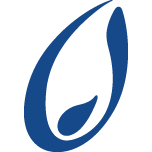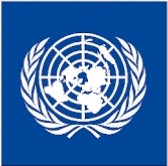Polio eradication is a corporate priority for UNICEF globally. Afghanistan is one of the two remaining countries where polio is still endemic. UNICEF commits to continue the work on polio eradication until the goal is reached.
With the declaration of polio as a public health emergency, Afghanistan is intensifying its efforts to ensure polio is stopped for good. As a key partner in the effort to eradicate polio, UNICEF has the lead role in communicating to families and communities about the importance of polio vaccinations. UNICEF has recently scaled up its human resource capacity at all levels, including the deployment of social mobilizers at the community level to expand household and community engagement. In addition, Communication Extenders have also been locally recruited in the regions to support communication and advocacy activities in raising polio awareness and other eradication efforts in areas where UNICEF staff cannot reach due to security reasons. There is continuous emphasis on the need to ensure evidence-based decision making for communication at all levels.
UNICEF’s work on communication, social mobilization and cold chain management for polio eradication entails collection, collation, and analysis of data on uptake and refusal of vaccines among children; this requires review of a range of monitoring data from the field. The information from this data will be used to guide programme planning and implementation at the regional, provincial and district level. It is necessary that regional (zonal) Polio teams have the capacity to manage information/ maintain database and analyses data/ information and provide critical information to track issues and progress of interventions in the respective regions.
Given the above programmatic needs, additional capacity is anticipated to support the UNICEF Polio team in terms of data collection, data analysis, use of data at the field level.
Purpose of Assignment:
The Monitoring and Evaluation Extender will support the zonal Polio teams in data collection, analysis, visualization, and evidence-informed decision making. The M&E Extender are responsible for the following:
1. Independent Monitoring and Data collection:
-
Conduct independent monitoring to verify and validate data received from the field teams (including verifying the campaign data, awareness survey data, Monthly program data, and other community engagement data).
-
Support the operationalizing of the data collection checklists designed for the use of the field teams, such as, PCOs, DCOs, FMV supervisors, FCEO supervisors, Cluster coordinators, Team leads, etc.)
-
Conduct monitoring visits for campaign activities, household surveys, and any other programme interventions.
-
Compile data from the field teams on monthly basis to maintain a regional database and feed into the centralized database at the national level, and report via the monthly polio program reporting template.
-
Support the analysis of quantitative and qualitative data to support regional, and district/cluster planning and performance management
2. Data analysis and visualization
-
Support data compilation, data editing/cleaning and quality assurance of data
-
Support the analysis of community engagement and communication programme data trends to demonstrate ICN performance and effectiveness in community engagement tracking missed children, and addressing missed children s, etc.
-
Support the analysis of quantitative data from different sources and prepare tables, graphs, charts, infographics, dashboards, maps to highlight issues, challenges, focusing on districts and clusters with high missed children, refusals.
-
Analyse and generate reports for monitoring data reported by the field teams via standard monitoring checklists/ONA tools
-
Compile and analyse other social data and social profiles to support district/cluster planning including identification of communication actions.
3. Use of data:
-
Support the dissemination of data products/findings to both UNICEF programme staff and to the communities/affected population, including monthly review meetings with UNICEF programme staff and workshops with high-risk communities, such as communities with pockets of silent refusals.
-
Support the tracking of recommendations/ actions arising from the data products.
-
Summarize and interpret data to inform program decision-making.
-
Communicate with the regions the findings and the infographics and provide orientation on the use of data.
4. Capacity Building and technical support
-
Support building the monitoring capacity of SBC extenders, FMV supervisors, FMVs and other field teams (PCOs, DCOs, etc.) in data collection, compilation, analysis, and reporting within the regions.
-
Provide technical support to all regions in the development and implementation of data analysis and visualization tools.
-
Develop and deliver training on data analysis and visualization methods and tools for program staff across the reg.
-
Facilitate the development of M&E plans for program partners.








